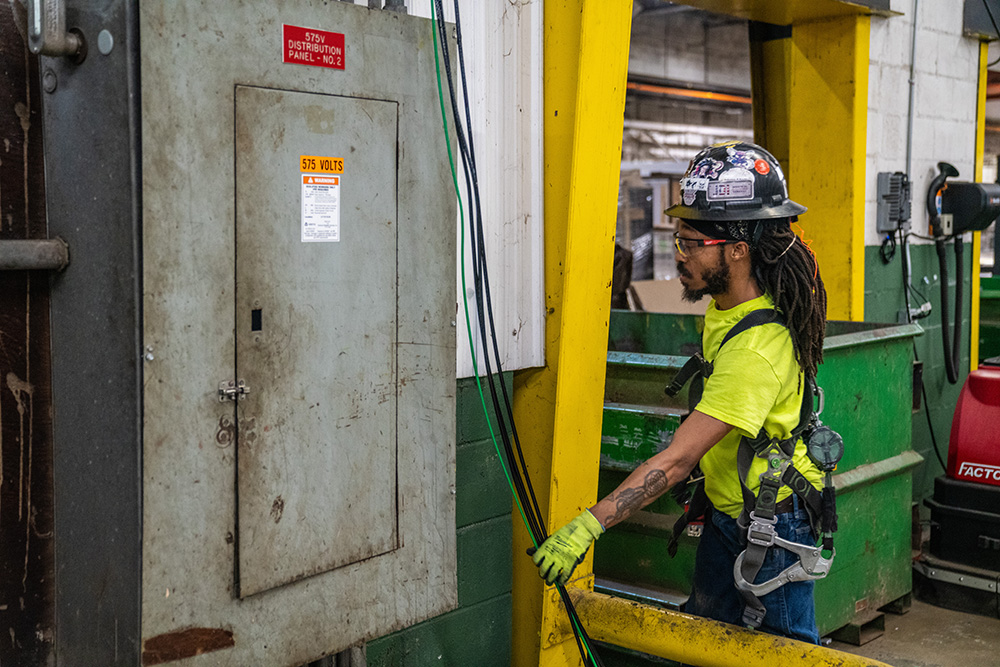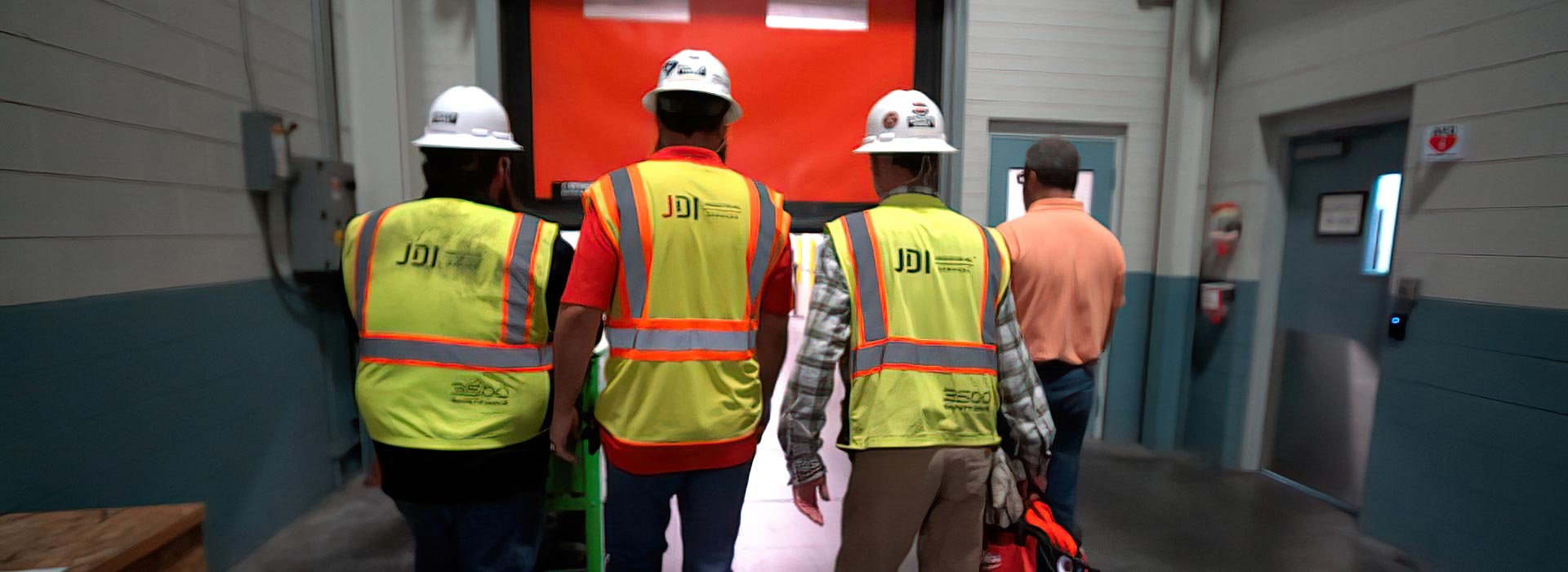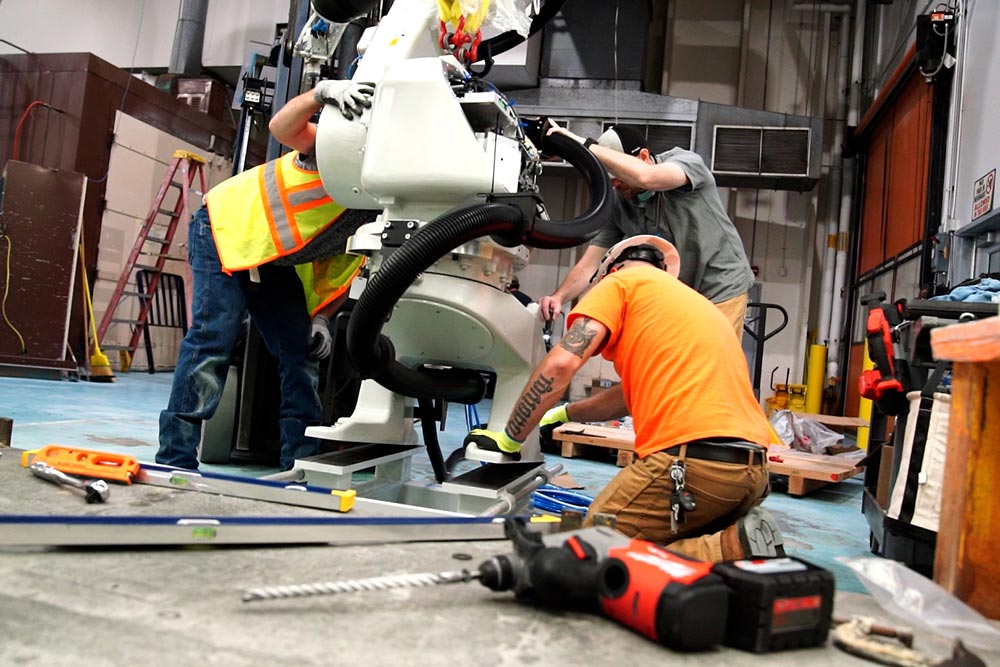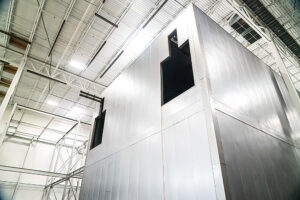Industrial electrical work is a specialized field that features industrial electricians. For JDI Industrial, we believe it’s a critical component of many industries, and that the personnel are even more important.
But what does it entail? What are the responsibilities of an industrial electrician?
This article aims to answer these questions. It provides a comprehensive overview of industrial electrical work that you can expect from us.
We’ll delve into the roles, tasks, and environments of our electricians. We’ll also explore the skills and training required for this profession.
Whether you’re considering a career in this field or seeking to hire an industrial electrician, this guide is for you. Let’s demystify the world of industrial electrical work.
 Understanding Industrial Electrical Work
Understanding Industrial Electrical Work
Industrial electrical work involves the installation, maintenance, and repair of electrical systems in industrial settings. Unlike residential or commercial electrical work, it typically deals with larger and more complex systems. These systems are often found in manufacturing plants, power stations, and other large facilities.
One of the key distinctions is the scale and scope of the projects. Industrial electricians work with high-voltage systems and machinery. They ensure the safe and efficient operation of electrical equipment. Their expertise is critical to the smooth functioning of industrial operations. Their work directly influences productivity and safety in these environments.
Industrial Electrician Responsibilities
JDI believes that it is essential to ensure complex electrical systems function smoothly in industrial settings. Our experts work on an array of tasks, each requiring specific skills and knowledge. Their responsibilities are varied and demand both technical expertise and practical experience. These duties ensure the reliability of electrical systems, which are pivotal to the operations of industries.
Some of the primary responsibilities include:
- Installing electrical systems and components.
- Maintaining electrical equipment and infrastructure.
- Troubleshooting and repairing electrical faults.
- Ensuring compliance with safety standards.
- Collaborating with engineers and technicians.
Every task they perform is crucial for preventing downtime and enhancing efficiency. Additionally, their role involves a commitment to continuous learning and adaptation to new technologies. They must also ensure that all activities comply with industry regulations and safety standards. These responsibilities highlight the diversity and complexity of their role in industrial electrical work.
Installation and Maintenance of Electrical Systems
A significant part of our electrician’s job involves installing electrical systems. They set up complex electrical circuits, wiring, and equipment. This initial setup is critical for long-term operational success.
Maintenance is equally important to ensure ongoing efficiency. Regular checks and scheduled maintenance prevent unexpected failures and extend the life of electrical equipment. Industrial electricians identify and address potential issues before they escalate. Their maintenance tasks keep the systems safe and functional, minimizing disruptions to operations.
Troubleshooting and Repairs
Troubleshooting is a key skill for an electrician in the industrial world. They must quickly identify electrical problems and implement effective solutions. This requires an in-depth understanding of electrical systems and components.
Repair work is often urgent and complex. Industrial electricians fix faulty wiring, replace worn-out parts, and restore power. Their ability to diagnose and repair issues minimizes downtime and ensures continuous production. This aspect of their work is vital for maintaining operational flow and safety standards.
Ensuring Safety and Compliance
Safety is paramount in industrial electrical work. JDI’s electricians strictly follow safety protocols to protect themselves and their colleagues. Adherence to safety standards prevents accidents and costly damages.
Compliance with regulations is another critical responsibility. Industrial electricians need to be familiar with the latest codes and standards. They ensure all installations and repairs meet legal requirements. This compliance protects the business from legal issues and ensures the safe operation of electrical systems.
Working with Advanced Technology
Industrial electricians frequently work with advanced technology, which is integral to modern operations. This includes automation systems and programmable logic controllers (PLCs). Mastery of these technologies is essential for their role.
As technology evolves, they must stay updated with the latest advancements. This continual learning allows them to implement cutting-edge solutions. Whether journeymen or above in experience, they need to know how to integrate new technologies into existing systems, enhancing efficiency and productivity. Their expertise in advanced technology makes them indispensable in driving progress and innovation in industrial settings.
The Work Environment of an Industrial Electrician
JDI’s team of electricians often work in dynamic and challenging environments. Their workplaces range from manufacturing plants to power stations and mining sites. These settings require both adaptability and resilience, as conditions can vary significantly.
The nature of their work environment involves dealing with heavy machinery and complex electrical systems. Industrial electricians are frequently exposed to noise, heat, and the need to operate in confined spaces. This requires a strong focus on safety and attention to detail.
Collaboration is a daily aspect of the job. We work closely with engineers, technicians, and other professionals. Effective teamwork is crucial to ensure the seamless operation of industrial facilities. This collaborative work environment enhances their ability to manage diverse projects efficiently.
Education and Training Requirements
To become an industrial electrician, a solid educational foundation is essential. Most start with a high school diploma or equivalent. This is followed by enrolling in a vocational training program focused on electrical systems.
Practical experience is key. Aspiring electricians often complete apprenticeships that provide hands-on learning. These programs, usually lasting four to five years, combine classroom instruction with on-the-job training.
Knowledge of advanced electrical concepts is crucial in this field. Industrial electricians often study complex subjects like programmable logic controllers and automation systems. Continuous learning ensures they stay updated with evolving industry standards and technologies.
Certifications and Licenses
Certifications enhance an industrial electrician’s credentials. Many jurisdictions require a license to practice, ensuring compliance with safety regulations and standards. These licenses are often obtained after passing a rigorous exam.
Specialized certifications can expand career opportunities. They demonstrate expertise in specific areas such as robotics or instrumentation. Holding relevant certifications can distinguish an industrial electrician in a competitive job market.
The Importance of Continuous Learning
Continuous learning is vital for industrial electricians. The electrical industry is constantly evolving with new technologies and methods. Staying informed about the latest developments helps electricians maintain high standards of work and safety.
Learning doesn’t stop after formal education. Industrial electricians often attend workshops and seminars to update their skills. Embracing lifelong learning equips them to handle increasingly complex systems, ensuring they remain competitive in the field.
Career Opportunities and Advancement
Industrial electricians have numerous career paths. They can advance into supervisory or managerial roles within their companies. These positions offer increased responsibility and potential salary growth.
Specializing is another avenue. Electricians may focus on areas like robotics, renewable energy, or automation. Such specializations can broaden job prospects and open doors to exciting, niche projects. The demand for skilled electricians continues to rise, offering a promising future in various sectors.
The construction industry is booming, and so is the demand for industrial electricians.
The need to replace aging electrical infrastructure is very real. Some industrial facilities date all the way back to the early 20th century.
Current trends suggest electrician jobs will grow 7% by 2031. Much of this is due to the ongoing growth of the power generation field. We need industrial electricians to upgrade electrical systems to solar and wind-powered systems.
Additionally, the need for cybersecurity continues to grow. Hackers learn new, more sophisticated ways to exploit companies every day. Electrical systems can provide a way into a company’s network. So, JDI’s industrial electricians need to keep cybersecurity in mind.
Any cyberattack is cause for concern. The fallout can be catastrophic. But when the target is a utility provider, government facility, or hospital? Then it’s a true disaster.
Companies need industrial electricians trained in cybersecurity. It’s an important aspect of stopping these attacks.
 The Future of Industrial Electrical Work
The Future of Industrial Electrical Work
The industrial electrical field is evolving with technology. Advancements like automation and the Internet of Things (IoT) are reshaping the industry. Electricians must adapt to these changes to remain valuable.
As industrial facilities strive for energy efficiency, the demand for electricians skilled in smart systems is increasing. The integration of sustainable energy sources is also crucial. These shifts indicate a dynamic and promising future for industrial electricians.
Conclusion
Industrial electrical work is vital in modern industry. The role requires a blend of technical skills and adaptability. As industries evolve, JDI’s electricians contribute significantly to efficiency and innovation. Pursuing this career offers opportunities for growth and involvement in cutting-edge technologies. Call on JDI, today, to have an expert industrial electrician on-site that can take care of your needs.



